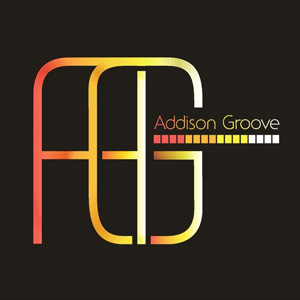Addison Groove Transistor Rhythm
When talking about Addison Groove, people love to mention juke. After all, 2010’s “Footcrab” and […]

When talking about Addison Groove, people love to mention juke. After all, 2010’s “Footcrab” and the infectious singles that have followed take more than a few cues from the hyperactive style with origins in the streets of Chicago. Nevertheless, Addison Groove (a.k.a. dubstep veteran Headhunter a.k.a. Tony Williams) isn’t a juke artist. First of all, most of his tracks aren’t even the right speed, usually clocking in a full 20 bpm slower (at least) than the average footwork tune. His music may be littered with 808 sounds, but the Bristol-based producer is crafting a sound that shouldn’t merely be categorized as a juke knock-off from the UK. With the release of Transistor Rhythm, his debut full-length as Addison Groove, the opportunity has arisen to truly stretch out his sound and show what the project is all about.
Right off the bat, it’s clear that Addison Groove is looking to make more than juke. Opening cut “Savage Henry” is a stripped-down cut constructed with an array of vintage drum sounds, but the song doesn’t excitedly flitter by. Dropping the tempo to the neighborhood of 115 bpm, it prowls along with a sense of self-assured bravado. If “Savage Henry” is mining anything, it’s old-school electro and ’80s-hip-hop instrumentals. A similarly brazen attitude colors the album’s next two selections, “Bad Things” and “Beeps,” both of which are voiced by Spank Rock. Unsurprisingly, the MC goes heavy on the foul language, which perhaps is meant to sound shocking but ultimately becomes tiresome. These songs are not among the LP’s best, although the gaudy big-room synths of the tacky “Sooperlooper” do help to take the stink off.
Misfires aside, Transistor Rhythm does have its share of keepers, particularly in the album’s latter half. “Dance of the Women,” a collaboration with bass-music troubadour Mark Pritchard, puts a frenetic, tribal spin on the Addison Groove formula, ultimately sounding like a raved-up take on kuduro. “Starluck” channels the hard, industrial vibes of Detroit techno, resulting in a tune that’s rather deep, even as it rolls out a thunderous and moderately distorted low end. Cutting up soulful divas is nothing new, but Addison Groove shows that the technique still has some life on the hooky “Skylight” and its more dreamy counterpart, “Incredibly Exhausted Bunny Ears.” Album closer “Entropy” also chops up some female vocals, but does so while hewing the closest to the frantic recipe that made “Footcrab” a success. It’s hard to imagine that rolling toms and rapid-fire percussion can still make the heart quicken, but “Entropy” does the trick.
In the end, Transistor Rhythm offers the proverbial mixed bag. It’s not a juke album; it’s not really any one thing, as Addison Groove was clearly looking to broaden the project’s sound palette. And while he’s to be commended for not simply turning in a record with 12 versions of “Footcrab,” his attempts to explore new territory aren’t always successful. That said, the album has its strong points, and, moving ahead, it’s probably best to try and focus on them.

